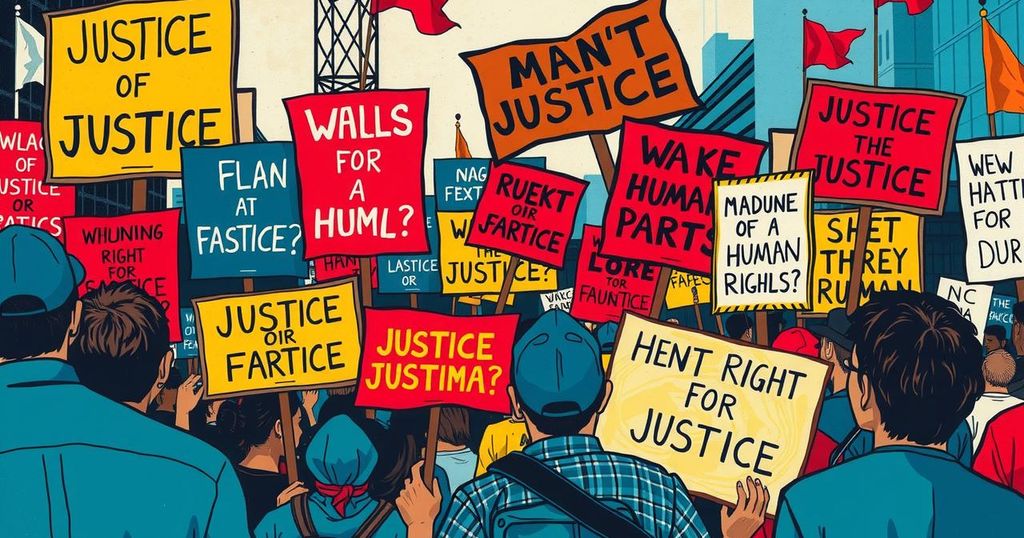Iran Protests Continue as Resistance Units Challenge Regime’s Repression
Protests continue in Iran as social groups express discontent with regime policies. Resistance units challenge repressive tactics amid rising human rights violations, highlighted by exhibitions across Europe. A trial for alleged spies is set for 2026 in the UK. Domestic insecurity rises, with criminal incidents reflecting governmental failures and societal breakdown. Activists warn of increasing desperation within the regime.
Iran has been rocked again by protests as social unrest continues to simmer among retirees, workers, and other groups. Many took to the streets from late May through early June to express their discontent with the regime’s failing policies and pervasive corruption. Demonstrators emphasized they would not back down, despite heavy-handed responses from authorities aimed at quelling dissent.
Meanwhile, the PMOI (People’s Mojahedin Organization of Iran) Resistance Units have intensified their activities, particularly in Zahedan, a city known for its harsh repression and security measures. On June 6, activists staged bold acts to confront the regime’s fear tactics, which have escalated amid increasing death sentences aimed at PMOI supporters. This environment has only heightened the risks faced by these activists but also fueled their determination.
In Europe, multiple exhibitions garnered attention highlighting the Iranian regime’s human rights violations. On June 7, both in Bucharest and Rostock, supporters of the PMOI organized exhibitions to protest against the alarming rise in executions and to advocate for the release of political prisoners. Participants in these events vehemently called for international action to hold the regime accountable for crimes against humanity.
Similarly, an exhibition in Berlin coinciding with these events condemned the Iranian regime’s human rights violations, especially the imposition of death sentences on political prisoners. In Bern, Switzerland, activists continued this narrative, targeting the regime’s escalating repression and calling for the urgent release of those unjustly detained.
On a legal front, the UK’s Old Bailey announced that the trial of three Iranian men, accused of working as spies for Tehran, will kick off in October 2026. Defense attorneys expect their clients to plead not guilty amidst a backdrop of widespread suspicion and distrust.
Crime and public insecurity also remain pressing issues within Iran, highlighted by the tragic murders of two individuals earlier this year. These incidents reflect a disturbing trend of increased violence in the streets, revealing deep-seated societal issues arising from government failures and economic distress.
Moreover, the regime’s approach to repression appears to be strategic. Reports indicate that it increasingly tests new methods of control in specific localities before expanding them to wider regions, effectively tightening its grip nationwide.
Lastly, a female activist from Tehran depicted the dire conditions under which Iranians live. Fereshteh, an IT researcher turned resistance fighter after the execution of her sister, warned that the regime’s desperation could drive them to chaos, such as using nuclear capabilities against adversaries. Her remarks articulate the broader sentiment of frustration and fear felt by many as resistance groups bravely confront the regime’s increasing brutality.
In summary, protests in Iran demonstrate the populace’s frustration toward a regime marked by failing policies and extreme repression. Activism is gaining momentum both domestically and abroad, with resistance units challenging the regime’s authority. Human rights violations continue to draw international attention, while looming trials and rising public insecurity paint a grim picture of life under the current regime. Activists warn that escalating desperation could lead to unpredictable outcomes for the regime and the nation.
Original Source: www.ncr-iran.org




Post Comment